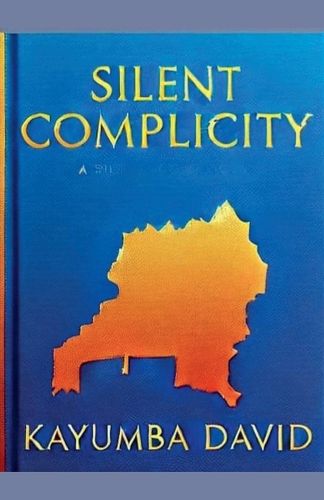Readings Newsletter
Become a Readings Member to make your shopping experience even easier.
Sign in or sign up for free!
You’re not far away from qualifying for FREE standard shipping within Australia
You’ve qualified for FREE standard shipping within Australia
The cart is loading…






This title is printed to order. This book may have been self-published. If so, we cannot guarantee the quality of the content. In the main most books will have gone through the editing process however some may not. We therefore suggest that you be aware of this before ordering this book. If in doubt check either the author or publisher’s details as we are unable to accept any returns unless they are faulty. Please contact us if you have any questions.
The Rwandan genocide of 1994 remains an indelible scar on the conscience of the global community. As a human rights advocate and scholar deeply invested in the intersections of state power and human dignity, I felt compelled to revisit this pivotal moment in history, not just as an academic inquiry but as a call to action for humanity. This book is an evolution of my Master's dissertation, State Sovereignty Versus Individual Rights in the Case of the Rwanda Genocide, 1994, presented at Nkumba University in 2006 under the guidance of Dr. Michael Mawa. In it, I initially explored the complex dynamic between the sanctity of state sovereignty and the moral imperative to protect human life. Over the years, as I continued my work in social justice, theology, and diplomacy, the lessons from Rwanda became a driving force behind my advocacy for human rights and my belief in the necessity of international intervention when governments fail to protect their citizens. This book is not just a historical account; it is a declaration that the right to life should supersede the principle of state sovereignty when these values clash. I have included a chapter honoring the RPF for its extraordinary efforts in rebuilding Rwanda after the genocide. It is a testament to the power of leadership rooted in reconciliation, justice, and progress. The incredible transformation of Rwanda, from near-total collapse to a beacon of hope and economic progress, showcases not only the resilience of the Rwandan people but also what is possible when a nation is guided by visionary governance. I hope that this work will serve as both a reminder and a rallying cry: that "Never Again" is not just a phrase but a responsibility that must be upheld by all nations, especially when the sanctity of human life is at risk.
$9.00 standard shipping within Australia
FREE standard shipping within Australia for orders over $100.00
Express & International shipping calculated at checkout
This title is printed to order. This book may have been self-published. If so, we cannot guarantee the quality of the content. In the main most books will have gone through the editing process however some may not. We therefore suggest that you be aware of this before ordering this book. If in doubt check either the author or publisher’s details as we are unable to accept any returns unless they are faulty. Please contact us if you have any questions.
The Rwandan genocide of 1994 remains an indelible scar on the conscience of the global community. As a human rights advocate and scholar deeply invested in the intersections of state power and human dignity, I felt compelled to revisit this pivotal moment in history, not just as an academic inquiry but as a call to action for humanity. This book is an evolution of my Master's dissertation, State Sovereignty Versus Individual Rights in the Case of the Rwanda Genocide, 1994, presented at Nkumba University in 2006 under the guidance of Dr. Michael Mawa. In it, I initially explored the complex dynamic between the sanctity of state sovereignty and the moral imperative to protect human life. Over the years, as I continued my work in social justice, theology, and diplomacy, the lessons from Rwanda became a driving force behind my advocacy for human rights and my belief in the necessity of international intervention when governments fail to protect their citizens. This book is not just a historical account; it is a declaration that the right to life should supersede the principle of state sovereignty when these values clash. I have included a chapter honoring the RPF for its extraordinary efforts in rebuilding Rwanda after the genocide. It is a testament to the power of leadership rooted in reconciliation, justice, and progress. The incredible transformation of Rwanda, from near-total collapse to a beacon of hope and economic progress, showcases not only the resilience of the Rwandan people but also what is possible when a nation is guided by visionary governance. I hope that this work will serve as both a reminder and a rallying cry: that "Never Again" is not just a phrase but a responsibility that must be upheld by all nations, especially when the sanctity of human life is at risk.